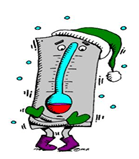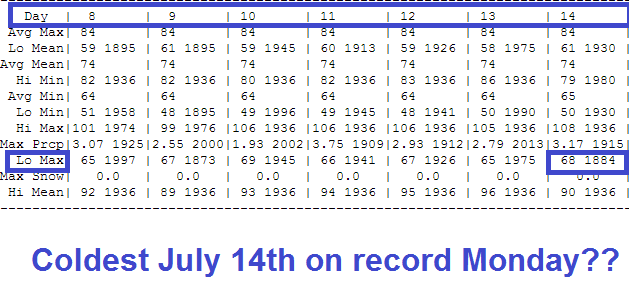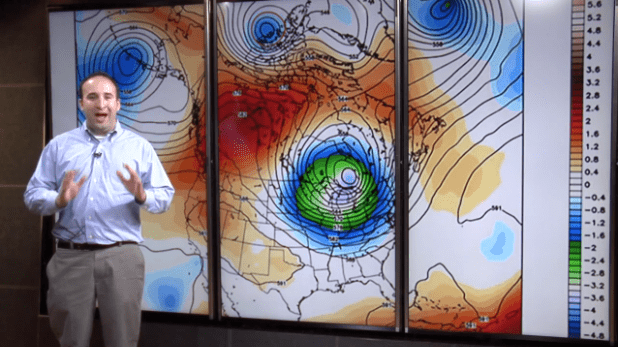128 year record cold Monday?
Go Deeper.
Create an account or log in to save stories.
Like this?
Thanks for liking this story! We have added it to a list of your favorite stories.
Get ready Minnesota. Monday may be the coldest July 14 in at least 128 years.

If the forecast numbers are right Minnesota may see record cold temps for Monday July 14. The Twin Cities will likely tie or break the all time record for the coldest daytime maximum temps on Monday of 68 degrees -- set way back in 1884.

The going forecast for Monday's partly gray showery high in the Twin Cities is low to mid 60s depending on which model you choose. A little weather perspective here, 65 degrees is the average high for -- wait for it -- Oct.1 in the Twin Cities.
Here's a look at the output from the National Oceanic and Atmospheric Administration's Global Forecast System for early next week from Weatherspark.
Turn Up Your Support
MPR News helps you turn down the noise and build shared understanding. Turn up your support for this public resource and keep trusted journalism accessible to all.

The European Centre for Medium-Range Weather Forecasts is even colder with a projected high of just 62 degrees Monday.
Here's a look at the Twin Cities National Weather Service forecast high temps Monday afternoon. Welcome to Minnesota, sports fans!

Typhoon teleconnection
Mondays record cold wave may actually have roots in the North Pacific from Super Typhoon Neoguri.
How can a super typhoon half a world away help drive record summer cold into Minnesota?
Great question. The answer may not be as complicated as you might think.

Meteorologists have long studies so called "teleconnections" in the atmosphere. It turns out the jet stream that steers weather systems overhead is like a long jump rope. Shake one end, and you can get a big wave rippling through the rope to the other end.

Super Typhoon Neoguri may be the shake that's helping drive an unusually cold polar vortex into the Upper Midwest Monday. There are many sources on this, but one of my favorites who I have spoken with about all things climate driven is Weather Underground's Jeff Masters.
Impact of Neoguri on U.S. weather
While the remnants of Typhoon Neoguri will not impact the U.S. directly, the large and powerful nature of this storm has set in motion a chain-reaction set of events that will dramatically alter the path of the jet stream and affect weather patterns across the entire Northern Hemisphere next week.
Neoguri will cause an acceleration of the North Pacific jet stream, causing a large amount of warm, moist tropical air to push over the North Pacific. This will amplify a trough low pressure over Alaska, causing a ripple effect in the jet stream over western North America, where a strong ridge of high pressure will develop, and over the Midwestern U.S., where a strong trough of low pressure will form.
This jet stream pattern is similar to the nasty"Polar Vortex" pattern that set up during the winter of 2014 over North America, and will cause an unusually cool third week of July over the portions of the Midwest and Ohio Valley, with temperatures 10 - 20°F below average.
Here's the latest temperature departure maps from NOAA's Global Forecast System model for Monday afternoon via Climate Reanalyzer.

Always excellent Jason Samenow from Capital Weather Gang has another take on a pattern that looks eerily similar to last winter's polar vortex.

Call it the ghost of the polar vortex, the polar vortex sequel, or the polar vortex’s revenge. Meteorological purists may tell you it’s not a polar vortex at all. However you choose to refer to the looming weather pattern, unseasonably chilly air is headed for parts of the northern and northeastern U.S at the height of summer early next week.
Bearing a haunting resemblance to January’s brutally cold weather pattern, a deep pool of cool air from the Gulf of Alaska will plunge into the Great Lakes early next week and then ooze towards the East Coast.
No matter what you call it, Monday's July polar vortex will get your attention and have you grabbing for the sweatshirt. And just in time to showcase Minnesota's fine summer weather for a national audience during MLB's All-Star Home Run Derby Monday evening.
Naturally.


